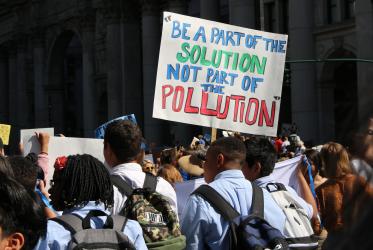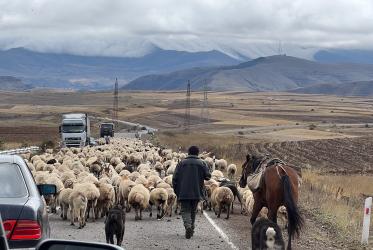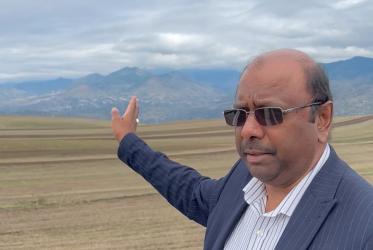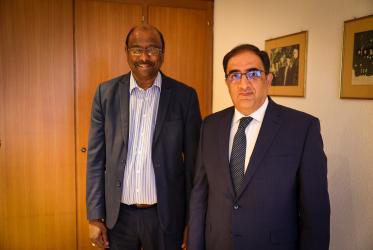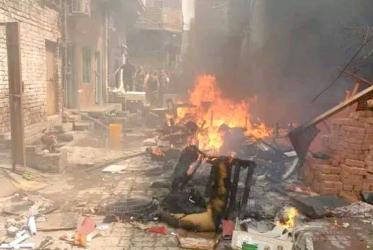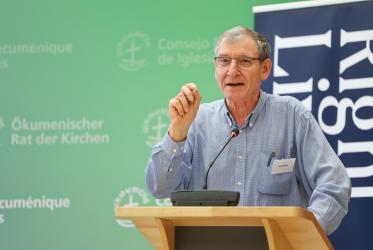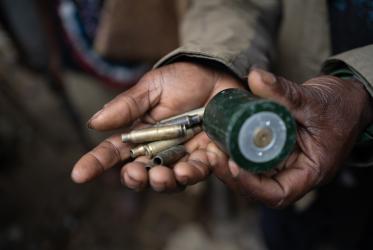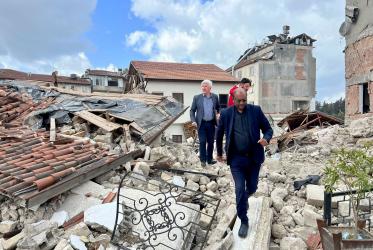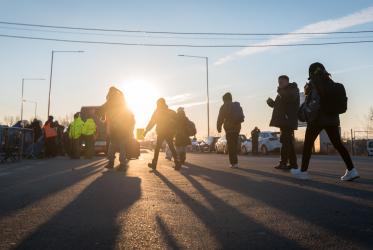Displaying 1 - 20 of 185
WCC delegation witnesses Azerbaijani forces shelling of Armenian enclave
25 September 2023
Ecumenism in the Philippines means hope and resilience
22 August 2023
German Protestant Kirchentag opens in Nuremberg
09 June 2023
Church of Sweden apologizes to Sámi people, this time in Sápmi
27 October 2022
Ukraine: Responding to humanitarian need
08 September 2022


